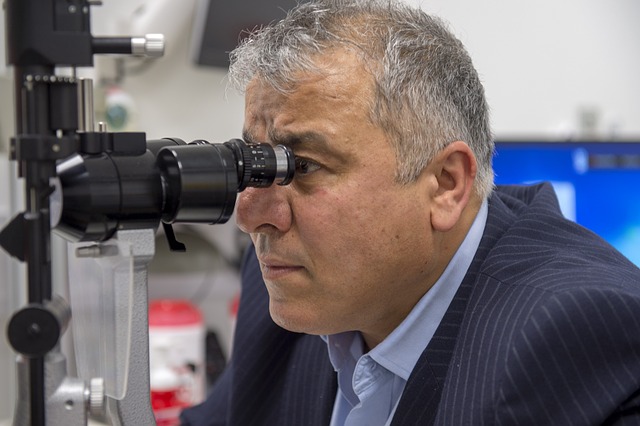Liver Function Tests (LFTs) using advanced thyroid blood tests are a crucial diagnostic tool in the UK, helping healthcare professionals comprehensively assess liver health. These tests identify conditions like hepatitis or cirrhosis and guide treatment planning. The UK Advanced Thyroid Blood Test goes beyond standard assessments by measuring markers such as TSH, T4, T3, and rT3 to diagnose thyroid and metabolic disorders. Accurate interpretation of results is vital for diagnosing and managing liver diseases effectively, with clinical value in monitoring treatment effectiveness and organ function.
“Unraveling liver health mysteries: A comprehensive guide for medical professionals. This article delves into the intricacies of Liver Function Tests (LFTs), offering a detailed exploration for advanced practice. We present an in-depth analysis with a focus on the UK Advanced Thyroid Blood Test, a powerful tool to assess metabolic health. Learn how interpreting LFT results can reveal significant clinical insights, enabling effective patient management and guiding treatment strategies.”
- Understanding Liver Function Tests: A Comprehensive Guide for Professionals
- UK Advanced Thyroid Blood Test: Unlocking Insights into Metabolic Health
- Interpreting Results and Clinical Significance in Liver Function Analysis
Understanding Liver Function Tests: A Comprehensive Guide for Professionals
Liver function tests (LFTs) are a crucial diagnostic tool for medical professionals, providing insights into the health and functionality of the liver. These tests play a vital role in identifying liver damage, abnormal liver enzyme levels, and various liver diseases. In the UK, advanced thyroid blood tests have further enhanced the accuracy and scope of LFTs, enabling more detailed assessments of liver health.
Comprised of a series of blood tests measuring specific enzymes and proteins, LFTs detect abnormalities that may indicate conditions like hepatitis, cirrhosis, or even early signs of liver cancer. By interpreting these results, healthcare professionals can make informed decisions regarding patient care, including diagnosis, treatment planning, and monitoring the progression of liver-related diseases.
UK Advanced Thyroid Blood Test: Unlocking Insights into Metabolic Health
In the UK, the Advanced Thyroid Blood Test has emerged as a valuable tool for medical professionals seeking to gain profound insights into their patients’ metabolic health. This comprehensive test goes beyond conventional thyroid function assessments by measuring various key markers associated with thyroid activity and overall metabolism. By analysing these indicators, healthcare providers can uncover underlying imbalances or conditions that may be affecting an individual’s energy levels, weight management, and even cardiovascular health.
The UK Advanced Thyroid Blood Test provides a detailed snapshot of the body’s metabolic processes. It includes measurements for thyroid stimulating hormone (TSH), thyroxine (T4), triiodothyronine (T3), as well as reverse T3 (rT3). These parameters offer crucial information about thyroid function, helping to diagnose conditions like hyperthyroidism, hypothyroidism, or subclinical thyroid disorders. Furthermore, the test may reveal signs of metabolic syndrome, offering early detection for preventive interventions aimed at promoting optimal health and wellness among patients.
Interpreting Results and Clinical Significance in Liver Function Analysis
Interpreting results from a liver function test, such as the UK Advanced Thyroid Blood Test, is crucial for accurate diagnosis and patient management. Elevated levels of enzymes like alanine aminotransferase (ALT) and aspartate aminotransferase (AST) may indicate hepatic inflammation or damage, while low albumin concentrations suggest impaired protein synthesis. Bilirubin levels can provide insights into bile flow; elevated levels, particularly unconjugated bilirubin, may signal obstruction or hemolysis.
The clinical significance of these findings is vast, ranging from identifying early signs of liver disease to monitoring treatment efficacy and assessing organ function. For example, a UK Advanced Thyroid Blood Test might reveal thyroid-related disorders affecting hepatic metabolism, emphasizing the interplay between endocrine and digestive systems. Accurate interpretation requires consideration of patient history, medication use, and potential confounders, ensuring that any abnormalities are addressed appropriately for optimal patient care.
Liver function tests are essential tools for medical professionals, offering valuable insights into metabolic health. The UK Advanced Thyroid Blood Test, with its comprehensive analysis, further enhances our understanding of liver and thyroid interactions. By interpreting results accurately, healthcare providers can make informed decisions, ensuring optimal patient care and management. This guide has provided a thorough framework for navigating these complex tests, highlighting the clinical significance in various scenarios.
